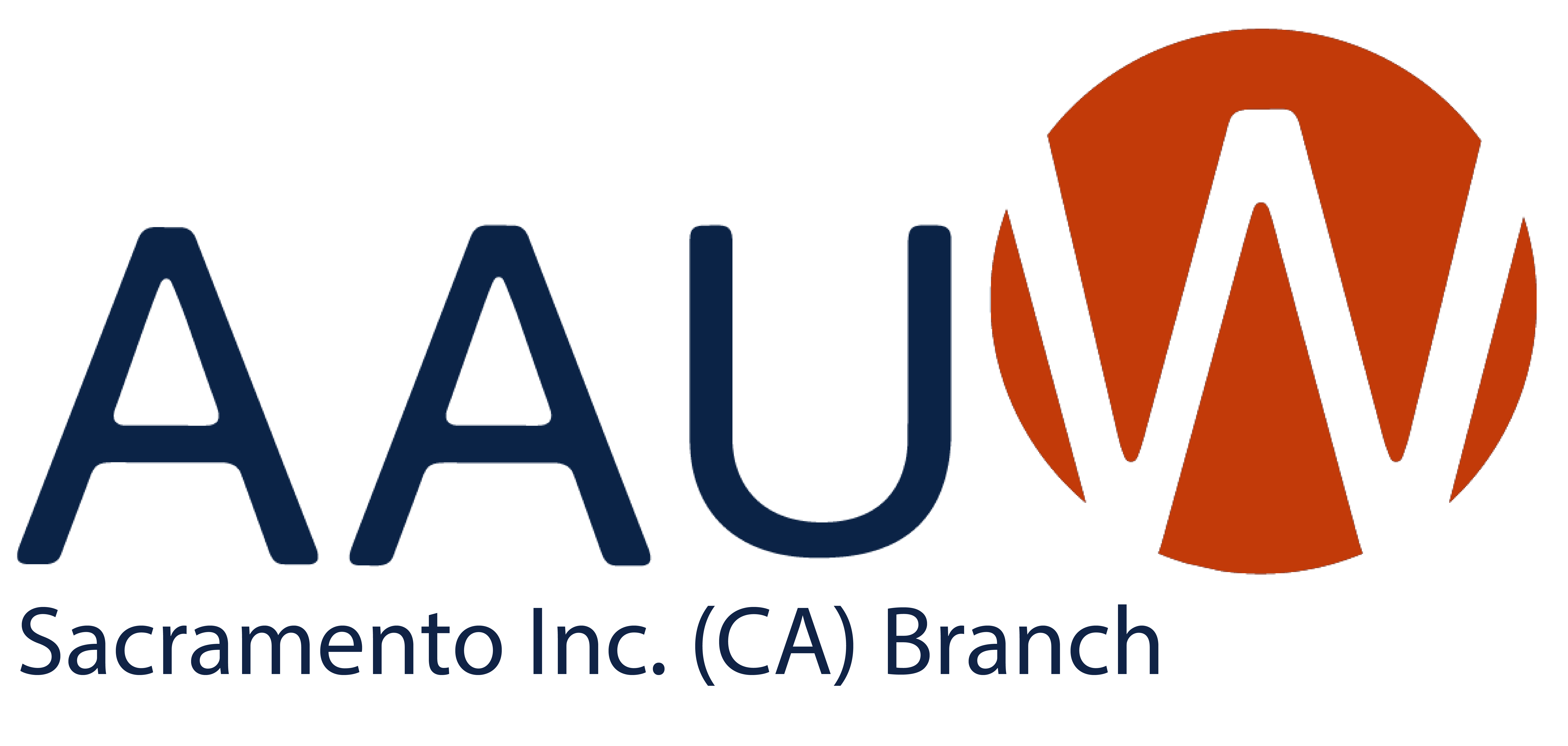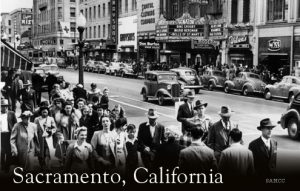The Second World War heavily influenced the AAUW Sacramento Branch and the entire national organization throughout the 1940s. As early as July 1940, the minutes of the Sacramento Branch show the formation of a committee by member Catherine Patterson to arrange secure foster homes for children of the British Federation of University Women. Branch president Verna Lawson spearheaded the Branch’s movement to contribute financial aid to European University Women who were fleeing dictatorships. After the Japanese attack on Pearl Harbor in December 1941 and the United States’ subsequent declaration of war, Mrs. Lawson informed the AAUW State Board of Directors that Sacramento was requesting the State Department of Education to address the continued education of “American-born children of aliens” who “may be evacuated to concentration camps for the duration of the war.” True to its principles, AAUW advocated for the safety and protection of women and children, the primary victims of the violence and politics of war.
Nationally, the Army contacted AAUW, asking its assistance in recruiting women as computers for the war effort while at home, Sacramento juggled its ongoing commitment to local charities and children’s causes at the same time members were participating in USO drives, victory book drives, and buying Defense Bonds. Members became civil defense volunteers and even took defense jobs. AAUW supported the formation of women’s units in the military, advocating equal pay for equal rank. In 1942-43, the Branch held a series of forums on education and wartime employment for women and created the AAUW Volunteer Bureau to provide emergency services, keeping records of the training and work experience of each member. Membership grew from 526 in May 1941 to over 600 members in 1945, and to 736 members by 1947.
Branch meetings continued throughout the war, with members sponsoring the City Public Health Pre Natal Clinic and sitting on the “Community Welfare Council, [working with] Girl Scouts, Campfire Girls, Children’s Theatre, Public Health Nurses’ Week, youth clubs,” and a host of other community organizations. The Marionettes group entertained thousands of children with scripts written by Branch members such as Hazel Pendleton, who later donated eight original scripts to the AAUW archives. Proceeds were often parsed out to fund national AAUW causes as well as to support local projects such as the Placerville Branch’s effort to purchase a county library. The ongoing tradition of awarding scholarships to eligible senior high school girls planning to attend four-year colleges and universities continued throughout the 1940s.
In August 1945, two atomic bombs were dropped on Hiroshima and Nagasaki, ending the war. AAUW member Virginia Gildersleeve was the only woman made a member of the United States delegation to attend the conference to establish the United Nations. Locally, the Sacramento Branch invited Dr. Lynn Townsend White, Jr., president of Mills College, to speak. Dr. White’s subject, “The Geographic Trouble Spots of the World,” included a discussion of the Russian point of view. Dr. White explained that, to the Russians, the United States was like a giant octopus whose tentacles presented an alarming danger to Russia. It was Dr. White’s view that the United State now had to develop a sense of responsibility toward the power it had. Thus, the arrival of the Atomic Age and the Cold War took a seat among the tea cups at the luncheon held at The Senator Hotel in the fall of 1945. By 1949, the Sacramento Branch of AAUW had reached 930 members, the largest in the state.

